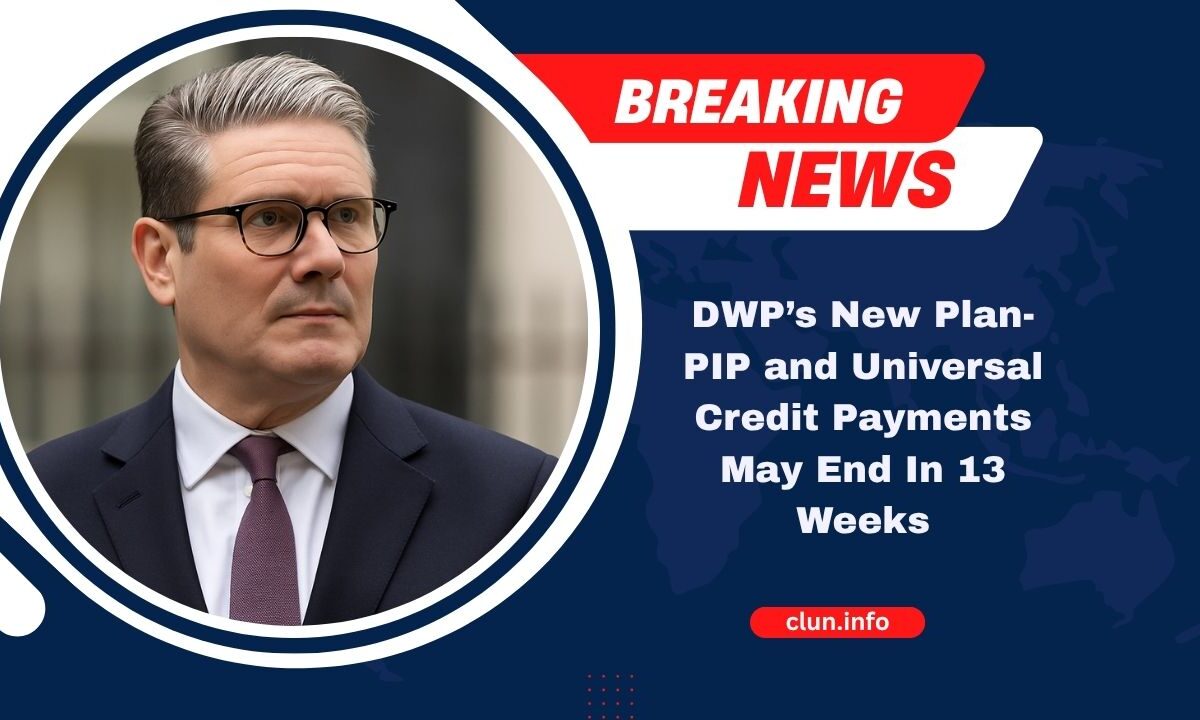In a major shake-up, the Department for Work and Pensions (DWP) has announced changes that could see payments for Personal Independence Payment (PIP) and Universal Credit (UC) recipients stop in as little as 13 weeks.
This new policy has drawn mixed reactions from both the public and members of parliament. Here’s what you need to know about this upcoming change and how it could impact hundreds of thousands of people in need of vital support.
What’s Changing in the DWP’s New Proposal?
The DWP has recently introduced a change to the way Personal Independence Payment (PIP) and Universal Credit are handled, potentially stopping payments within 13 weeks for those who no longer qualify. Originally, the plan had proposed harsher cuts, which could save the government up to £5 billion.
However, following opposition from the Labour Party and some government backbenchers, the DWP has decided to extend the transition period to 13 weeks instead of the typical four-week window.
Key Details of the New DWP Policy
The policy aims to cut PIP and UC payments for those who are no longer eligible, impacting individuals with health or disability-related conditions that no longer meet the required criteria.
The transition period has been increased from four weeks to 13 weeks, which means that individuals who are losing their eligibility will continue to receive support for a longer period.
Here’s a breakdown of the proposed changes:
| Key Change | Details |
|---|---|
| PIP Recipients Affected | Over 370,000 people will lose their PIP payments, with an additional 430,000 who will no longer become eligible. |
| Impact on Payments | Recipients will lose, on average, £4,500 annually due to the cuts. |
| Transition Period | A 13-week transition period will be in place for individuals who lose their eligibility. |
| Carer’s Allowance | Carer’s Allowance will continue to be paid during the transition period but will stop when PIP is taken away. |
| Severe Health Conditions | Recipients with the most severe health conditions will be exempt from reassessments and receive additional income support through UC. |
| Work Without Risk | A new scheme will allow disabled people to try employment without the risk of losing their benefits. |
Why Are These Changes Happening?
The government’s new approach aims to save billions, but it has raised concerns among MPs and the public.
Initially, the cuts were seen as a way to reduce welfare spending. However, the extended transition period of 13 weeks gives recipients more time to adjust, easing some of the immediate financial hardship.
A key part of this reform is also the “right to try” employment initiative. This new scheme will allow disabled individuals to test out employment opportunities without the fear of losing their essential support payments.
Political Backlash and Opposition
The announcement of these changes has sparked strong reactions from the opposition, particularly from the Labour Party.
Labour MPs have voiced their concerns about the fairness of the policy, suggesting that the 13-week transition period is still insufficient and may lead to unnecessary hardship for disabled individuals.
Ian Byrne, a Labour MP, criticized the proposal, questioning why people with disabilities or long-term health conditions would lose their vital support after only 13 weeks.
Other MPs, including Rachael Maskell, have echoed similar concerns, arguing that the extended transition period still does not address the root issues facing disabled individuals.
Impact on Affected Recipients
For those impacted by the changes, this policy will have a significant financial and emotional impact. Losing PIP or UC benefits could mean that many individuals no longer have the support they need for daily living activities like preparing meals, personal care, and transportation.
The loss of financial support can also be emotionally distressing for those who rely on these payments to manage their conditions.
The DWP’s shake-up of PIP and Universal Credit benefits marks a significant change, particularly for those who rely on these payments.
While the 13-week transition period provides some relief, the long-term impact on hundreds of thousands of individuals remains a concern.
It’s essential for those affected to stay informed about these changes and take necessary steps to secure their financial stability.
FAQs
What is the 13-week transition period?
The DWP has extended the transition period from four weeks to 13 weeks for individuals who lose their PIP or UC eligibility. During this time, they will continue receiving payments to ease the financial burden.
How many people will lose PIP payments?
Over 370,000 people will lose their PIP payments, while another 430,000 will not be eligible for PIP in the future.
What happens to Carer’s Allowance during this period?
Carer’s Allowance will continue to be paid during the 13-week transition period but will be stopped once PIP payments are ended.
